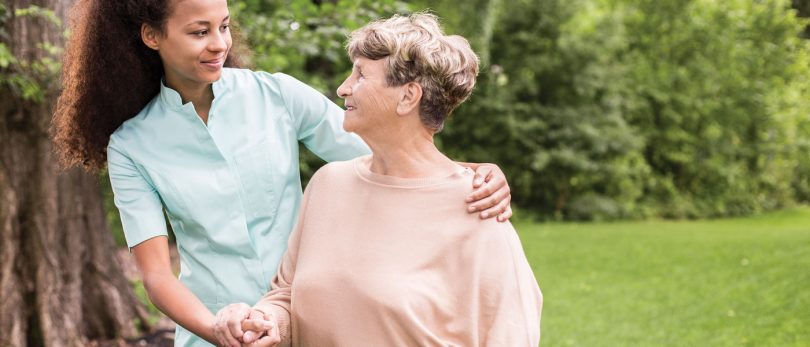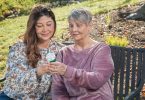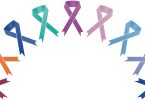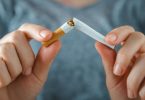For patients with a cancer diagnosis, there is more to coping with the disease than the fight itself. Whether they are going through chemotherapy, radiation or surgery, many patients find that they are unusually tired and, no matter how much rest they get, the exhaustion doesn’t go away.
This common side-effect of cancer or the treatments used to combat it is referred to as cancer-related fatigue. It happens in as many as 75 percent of patients who are actively undergoing treatment. About 25–30 percent of survivors report this same kind of fatigue at some time post-treatment — maybe even as long as two years after their last treatment.
UHS has a program to help these patients called HOPE (Helping Oncology Patients Exercise). Oncologists and other physicians who work closely with cancer patients use a series of questions to determine if cancer-related fatigue is impacting the patients’ ability to carry out daily activities. Patients who feel that fatigue is getting the better of them are then referred to HOPE’s free 12-week exercise program.
Linda Wasser, OT, director of UHS Physical Therapy and Rehabilitation, oversees the program.
“HOPE patients work with a registered nurse, exercise physiologist, and physical or occupational therapists to identify and work on their fatigue or any specific medical, nutritional or psychosocial problems related to their diagnosis and treatment,” Ms. Wasser says. For example, mastectomy patients who have difficulty lifting their arms over their heads work on that task in addition to participating in the exercise program that addresses the fatigue.
The HOPE program began as an outpatient therapy service around 2013, but it has recently been revamped by providing clinicians working in the oncology program a better protocol for identifying and referring fatigued patients. In addition, HOPE services are now part of the health, wellness and rehabilitation services located in Phelps Hall at UHS Binghamton General Hospital.
“HOPE offers oncology patients and survivors the opportunity to work together, giving them a sense of community and mutual support,” says Ms. Wasser. “And by having them with us here at a supervised health and wellness program, patients have better opportunities for education — if they have questions on nutrition or psychosocial issues, for instance.”
Initial screening for the program can be done at any outpatient facility, during a regular oncology appointment or visit with a primary care physician. Patients who are referred to HOPE can participate in two sessions per week for the free 12-week program. Those who want to continue after 12 weeks can do so on a self-pay basis.
HAVE HOPE
If you or a loved one would like more information about UHS HOPE, call 762-2178 to speak with an exercise physiologist about the program. Medical clearance and a referral from an oncologist or primary care physician is required to join.







